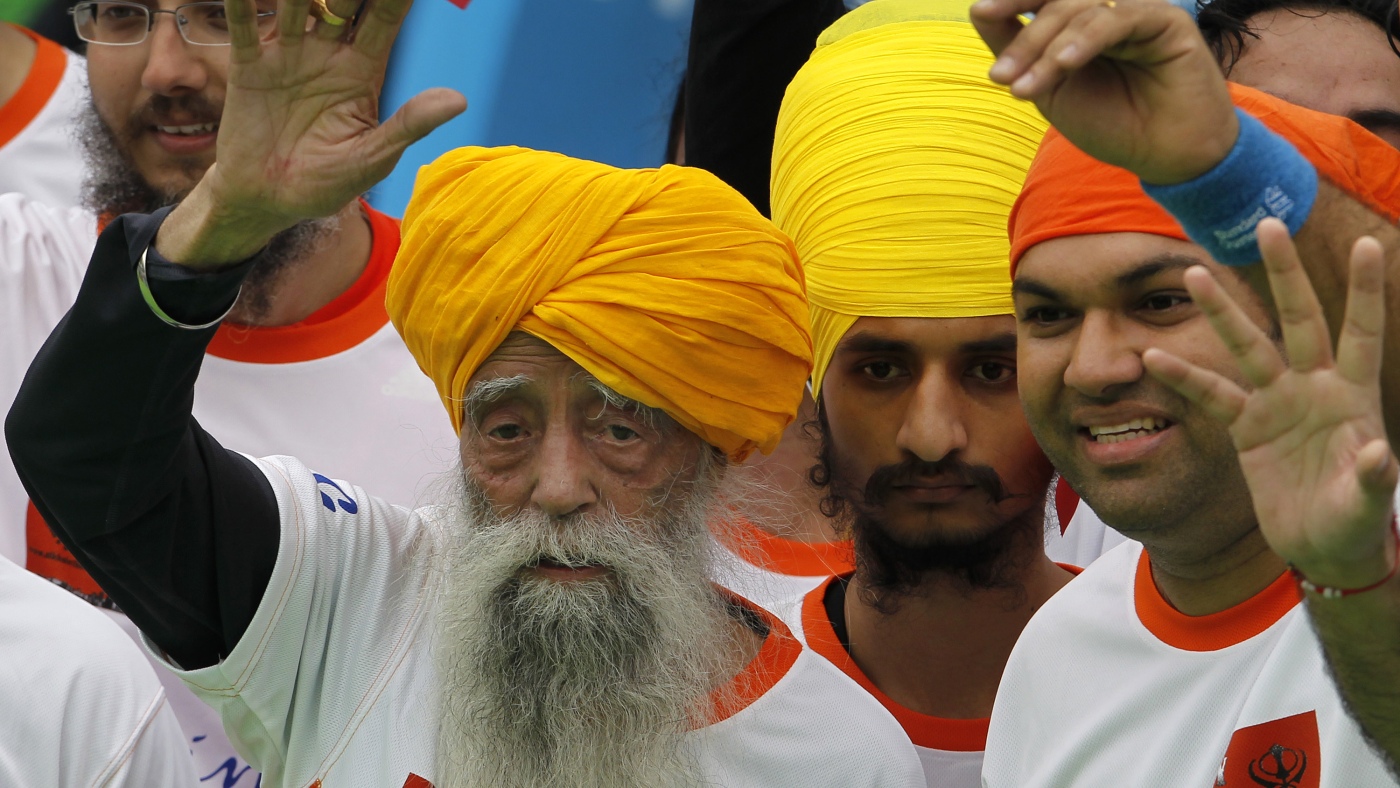Fauja Singh, the beloved centenarian marathon runner from India, tragically lost his life on July 14, 2025, after being struck by a speeding SUV while checking on his rice fields near Beas Pind village in Punjab. The iconic athlete, who became a symbol of resilience and determination, was 114 years old at the time of his death, which has generated an outpouring of grief and reflection on road safety in India.
Singh’s journey into the world of marathon running began in London in 1999, when he was introduced to coach Harmandar Singh at the age of 89. Initially, Fauja arrived for training dressed in a three-piece suit, a sight that prompted Harmandar to advise him on the impracticality of running in formal attire. Fauja, a Sikh farmer who moved to London to live with one of his sons, was motivated not only by the desire to run but also by a need to overcome the grief of losing several family members in quick succession.
Over the next 14 years, Fauja became an exceptional student, completing nine full marathons and numerous shorter races around the globe. His remarkable achievements included a personal best of five hours and forty minutes at the 2003 Toronto Waterfront Marathon, where he also made history by becoming the oldest person to finish a marathon at the age of 100. Although he did not receive official recognition for this feat due to a lack of a birth certificate, the media celebrated him as the “Turbaned Tornado” and featured him in campaigns by sports brands such as Adidas.
Fauja Singh retired from competitive running in 2013 but continued to be a prominent figure in local sporting events, where he often requested medals for participation, a testament to his enduring passion for the sport. His family home in India became a shrine to his many accolades, with shelves adorned with medals and trophies reflecting his extraordinary journey.
On the afternoon of his death, Fauja was checking his rice fields when he was struck by an SUV. The incident occurred on a busy highway, and according to eyewitness Balbir Singh, Fauja lay injured for several minutes before help arrived. Tragically, he lost too much blood, and despite the efforts of medical personnel, he succumbed to his injuries. His passing has sparked conversations about road safety in India, where more than 150,000 fatalities occur annually due to traffic accidents.
In the wake of his death, India’s Prime Minister expressed his sorrow, stating that the news was painful for the nation. Plans are already in motion to honor Fauja’s legacy, with proposals to establish a Fauja Singh Clubhouse along his training route in London, where he had inspired countless others.
The circumstances surrounding his death have also spotlighted the alarming state of road safety in India. Nitin Gadkari, India’s highway minister, acknowledged in Parliament that the death toll from accidents continues to rise. Local police have made an arrest related to the hit-and-run incident, detaining a 26-year-old man from a nearby village who attempted to evade authorities following the collision.
Experts attribute the dangers on Indian roads to a combination of factors, including reckless driving and inadequate infrastructure. Manjit Singh, the local traffic police chief, noted a growing trend among youth to imitate dangerous stunts seen in foreign media. At the same time, pedestrians often take risks by crossing busy roads without utilizing designated crossings, which are often located far from their immediate routes.
Road safety advocate Rohit Baluja highlighted the need for improved traffic engineering and road design, emphasizing that authorities frequently overlook the vulnerabilities of pedestrians while focusing on vehicle traffic. He pointed out that many roads lack essential features such as rumble strips and adequate signage, contributing to the high risk of accidents.
Fauja Singh’s legacy extends beyond his competitive achievements. His lifestyle, characterized by a healthy diet and regular physical activity, served as an inspiration to many, including his granddaughter Japneet Kaur, who recalls moments spent learning from him just days before his passing.
Fauja’s life story is one of triumph over adversity, and his untimely death has prompted a reevaluation of the urgent need for better road safety measures in India. As communities mourn his loss, they also recognize the critical importance of ensuring safer environments for all road users, especially the vulnerable.





































































